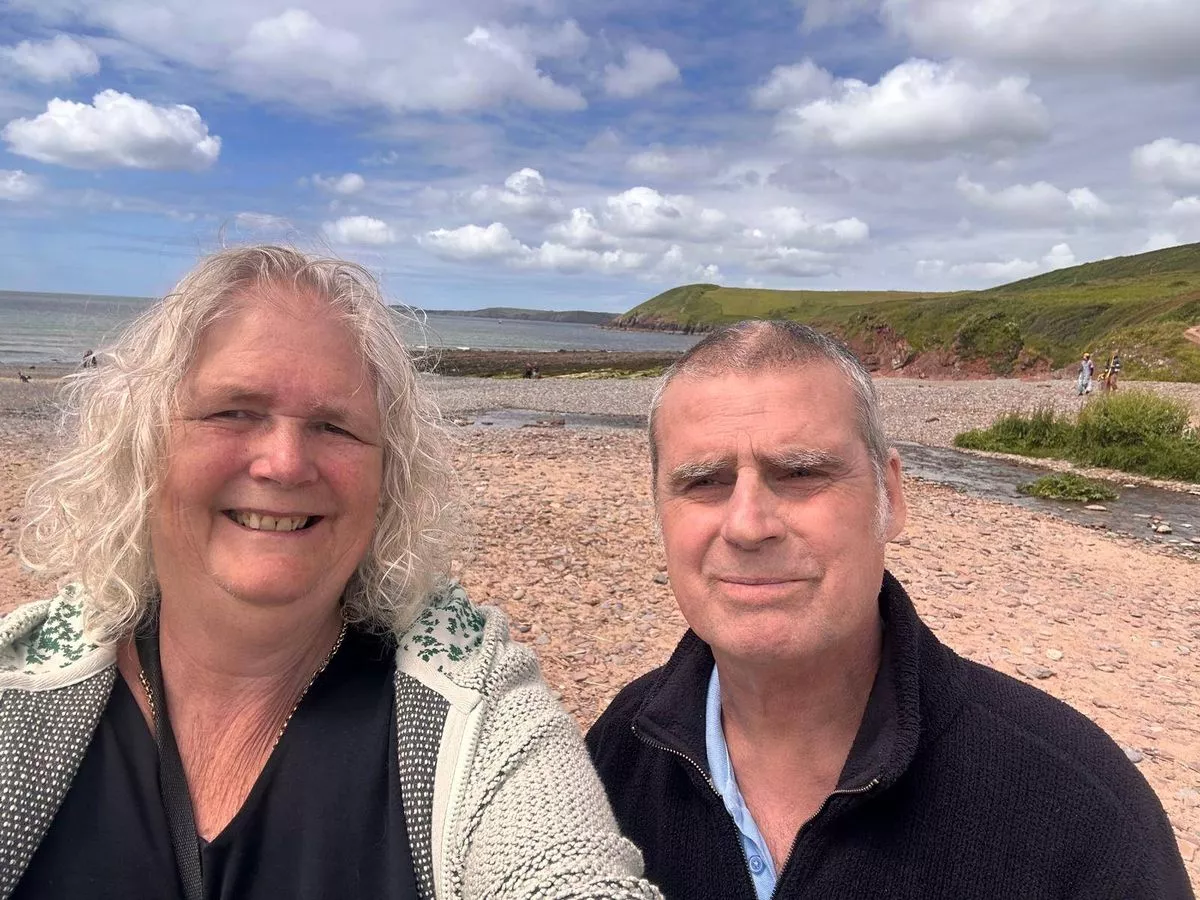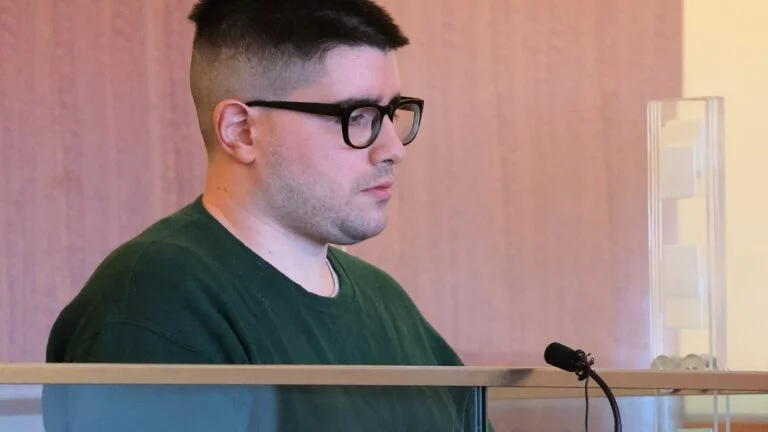Copyright dailypost

A man from west Wales was discovered collapsed on his bathroom floor by police, who later realised he'd been there for four days. Mark Causey, 61, from Kilgetty in Pembrokeshire, had dropped his wife Rosalind off at her mum's home in Margam for a few days and returned home alone where he planned to have a normal week doing some DIY. However, Rosalind sensed something was wrong when Mark failed to contact her. Using the webcam they'd set up in their Kilgetty home via her phone, Rosalind could see on the recordings how her husband had been "dishevelled and staggering" around the house and after that she couldn't see him on the recordings at all. She remembered: "Mark had driven me to my mum's home in Margam village as her health was declining and he returned home to do some DIY. I became very worried on the Friday, I couldn't reach him. "I checked our webcam and saw the previous Monday's footage captured him looking dishevelled and staggering. Then there was no more movement, anywhere at home, something was wrong. "I called the police to do a welfare check. When they broke in they found Mark collapsed on the bathroom floor. He'd been there for four days.", reports Wales Online . When paramedics arrived Mark was semi-conscious and severely dehydrated. He was rushed to Withybush General Hospital where a CT scan revealed lesions on his brain. Rosalind said: "As a nurse I knew immediately that wasn't good. When they said 'lesions' my heart sank. I thought it could be a stroke or cancer." Join the North Wales Live Whatsapp community now Mark also experienced kidney failure due to dehydration. He was given high-dose steroids to reduce brain inflammation and slowly regained some mobility. Remarkably things were at one point looking up for Mark despite what he'd been through. After three weeks in hospital he was discharged home. But days later he was asked to attend an outpatient appointment at Singleton Hospital in Swansea where the neurological team delivered the heartbreaking news. He was diagnosed with glioblastoma, the most aggressive form of brain cancer. Rosalind shared: "The consultant then told us that surgery or a biopsy wasn't possible because the tumour had spread with spider-like tendrils throughout his brain. They said that Mark only had eight to 12 weeks to live. "We were numb. Mark kept saying they had to be wrong, he was determined to fight. Mark wanted more than anything to be well enough to ride the motorcycle he spent months restoring." Mark was prescribed chemotherapy, though without a biopsy it was uncertain if the tumour would respond. Despite his determination and brief improvement, a follow-up MRI revealed the tumour had doubled in size. "We were devastated," said Rosalind. "He'd been walking again, first making it from the house to the garden gate, then he walked further afield to attend a bike night at our local pub. But the tumour was so aggressive. "We looked into private hyperthermic therapy in London, which uses heat to kill cancer cells, but it was too late. His cancer was too extensive and too fast-growing." Mark, a keen runner and motorbike enthusiast, had completed several marathons and spent countless hours restoring bikes in his garage. Despite his deteriorating health, he continued to fight. Rosalind said: "Mark didn't want to talk about dying. Watching him fade was heartbreaking. Sometimes I'd go into the garden to water my tomatoes so he wouldn't see me cry. He always asked for the first ripe one." Mark passed away in September 2024 surrounded by his loved ones at home. His funeral reflected his passion for motorcycles, with his coffin transported on a motorcycle hearse, followed by over 100 bikers from across the community. In his memory Rosalind is now teaming up with Brain Tumour Research to take on their 99 miles in November challenge, aiming to raise crucial funds for finding a cure for brain tumours. Brain tumours are the leading cause of death in children and adults under 40, and more men under 75 than prostate cancer, yet only one per cent of national cancer research funding is allocated to this disease. This November Brain Tumour Research is encouraging people to take part in the 99 miles in November challenge, a fitness fundraising event to support research and improve outcomes for patients like Mark. Participants can walk, run, cycle, swim, or clock up miles in the gym, at their own pace, in their own way. "I'm walking 99 miles this November for Mark and for everyone affected by this cruel disease," Rosalind added. "Research is the only way we'll stop others from going through what we did. I've already raised over £300, and I'll be walking every step for him. " Brain Tumour Research provides long-term funding to dedicated Brain Tumour Research centres of excellence at key academic institutions. Letty Greenfield, community development manager at Brain Tumour Research, said: "Mark's story is a heartbreaking reminder of how brutal brain tumours can be. Rosalind's strength and courage in sharing their experience is truly inspiring, and every mile she walks helps us move closer to finding a cure. We hope his story inspires others to take on the challenge." Sign up for the North Wales Live newsletter sent twice daily to your inbox



